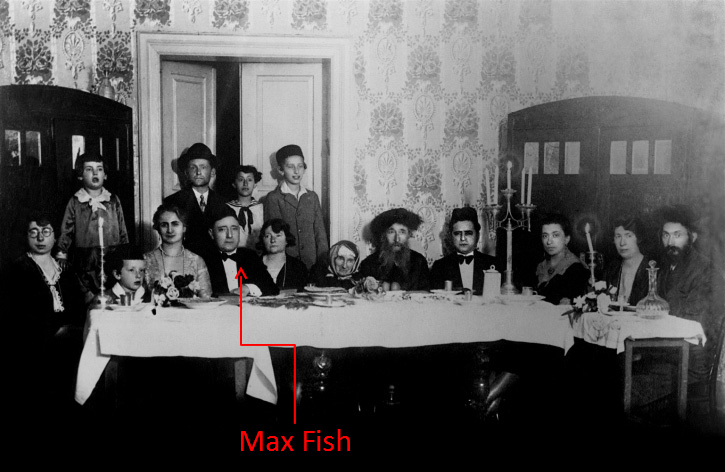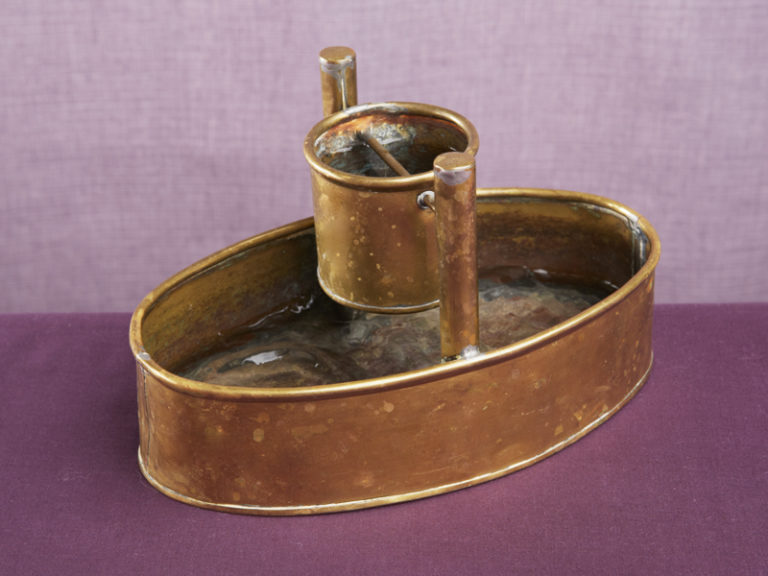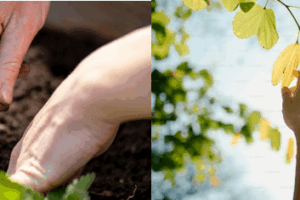The Afikoman is created by breaking an ordinary piece of matzo. What is something ordinary that has become extraordinary for you?
We think a lot about transformation from the ordinary to the extraordinary during our Seder.
A good example is the Afikoman. We ate matzo at the start of our journey out of slavery, but during the Passover Seder, we transform this simple humble food. We take one ordinary piece of matzo and by breaking it in half, it becomes an extraordinary piece of matzo: the Afikoman.
One example of something ordinary to extraordinary in my life is my family’s antique brass hand washer. I received it as a gift from my grandmother, Helen Fish Goldfarb. Her father, my grandfather Max Fish received it from his father (my children’s great great great grandfather Moshe Fish). It is from the late 1800’s in Dynow Poland and has been used for Passover in our family for over 100 years. Perhaps your family has an artifact or heirloom that has been handed down over the generations, layered with the history of your family, and so has become “extraordinary.”

What is something ordinary in your life that you have transformed into something extraordinary?
Kids: Is there something special you have transformed in your life because you love it so much? Maybe a special blanket or doll? Or something you received from a special relative, or is it something you made? Something you have transformed by how much you love it and need it?
Adults: How do you know that it has become extraordinary? Do others or just yourself know this transformation? Do you have a “public” Afikoman and a “private” Afikoman?






